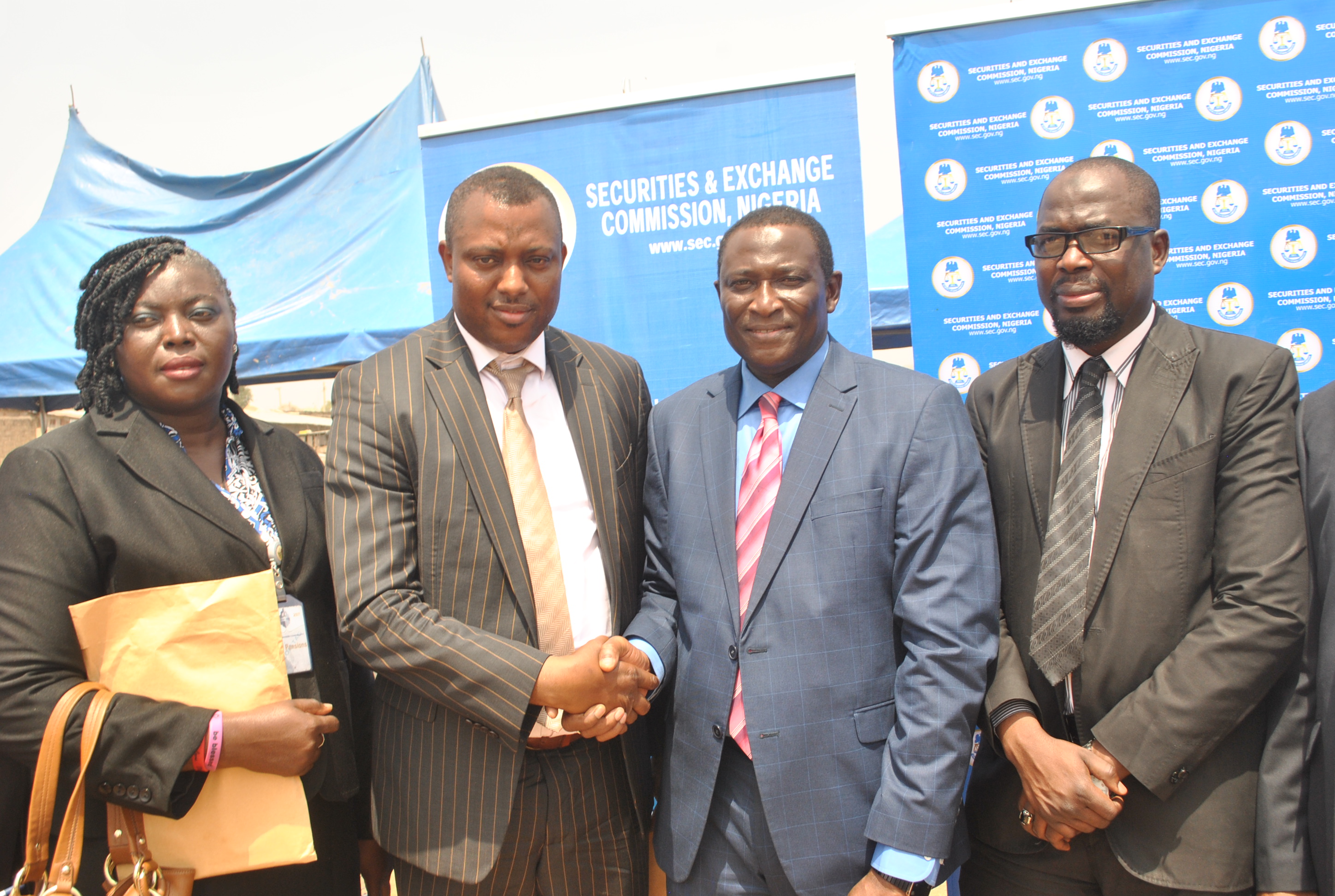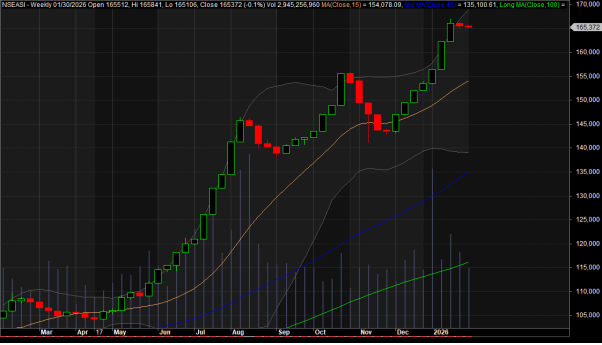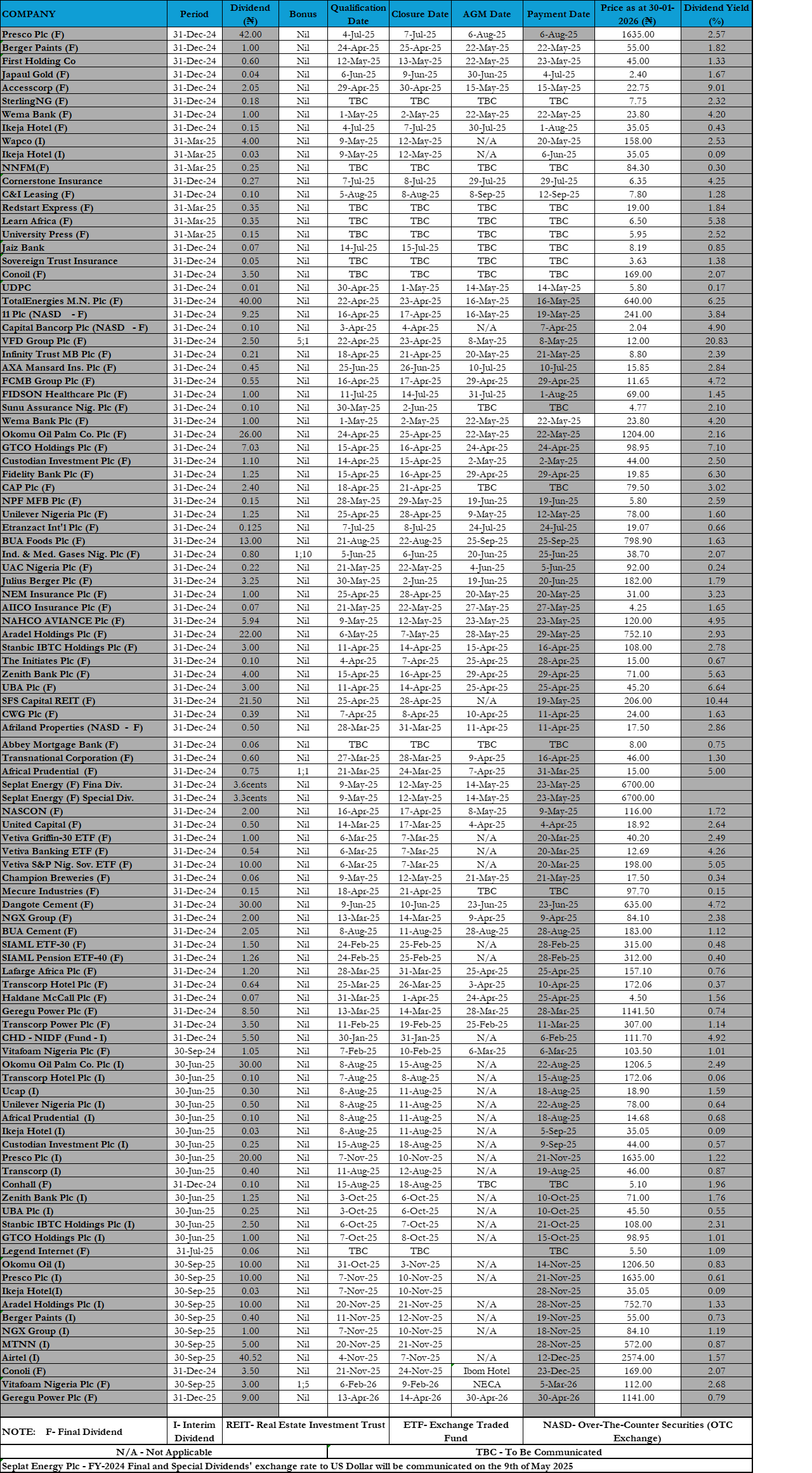
Caption: Head Awareness Unit, Micro Pensions Department National Pensions Commission (Pencom), Mrs Obiageli Okosi; Head, Research Department, Pencom, Lasbery Lot; Representative of the Acting Director General Securities and Exchange Commission (SEC), Mr. Abdul Bello; and Data Analyst at the Central Bank of Nigeria, Dr. Gazali Mohammed; during the Financial Inclusion Sensitisation Programme held in Abuja at the weekend.
Ahead of the 2020 target to reduce the number of Nigerians who are still outside its formal financial system, regulators of the nation’s financial services industry at the weekend, again went on a sensitization campaign to selected Abuja neighbourhoods.
Speaking at the event in Karshi, Abuja, Acting Director General of the Securities and Exchange Commission (SEC), Dr. Abdul Zubair said the regulators aim to achieve increased level of financial inclusion of Nigerians by the year 2020.
The latest move, he continued, followed the huge success recorded in previous outings in Bwari, Kuje Area Councils and University of Abuja, which made it pertinent that the programme be extended to other communities to reach more Nigerians.
According to Zubair, who was represented by commission’s Director, Market Development Department, Abdul Bello, said: “Financial Inclusion as we all know is to ensure that various products at affordable costs are made available to the excluded.
“This is why we have carried this enlightenment campaign to karshi so that the excluded will have an understanding of the available products in the Nigeria Capital Market. Our target is to have increased number of citizens financially included by the year 2020.
“Because of the importance SEC and indeed stakeholders of financial inclusion attach to reaching out to the excluded, our sister organizations are here to equally give us briefs on products that are available in other (arms of the) financial services sector.
“Specifically, we have CBN, NDIC (Nigeria Deposit Insurance Corporation), to talk to you about money market. NAICOM (National Insurance Commission) to talk about insurance; and PENCOM to give advice to the working class and general public on the benefits of investing in Pension Products,” he stressed.
The e-dividend registration is a measure through which the commission is working to reduce the mountain of dividend paid by companies and have over the years remained unclaimed by the beneficiaries for one reason or the other.
Unclaimed dividend had remained a sore point in the history of the Nigerian capital market, rising to an estimated N90bn in September, 2015, before it was reduced by N29.3bn within 11 months, as the commission embarked on a road show for the purpose.
Bello urged those yet to take advantage of the ongoing free e-dividend registration exercise to do so by approaching their bankers or registrars before the February 28, 2018, so that their accrued dividends is paid to their bank accounts electronically.
In a goodwill message, CBN representative, George Ogudu told participants that financial inclusion enables them manage their money more efficiently, besides offering opportunities for accessing various loans to sustain and grow their businesses.
He however emphasized that such loans are not free money, but to assist small businesses thrive.
Such loans, he stressed, are “different from the one you have to go through cumbersome processes in the banks. Now government is giving out loans with little interest and you do not need a collateral. All you need to do is to form small market women groups or cooperatives. But you need to have an account to access the money.
“Now with your mobile phone number and passport photograph you can open an account. No need for utility bills and other (means of) identification. Open an account and be saving money in it gradually then you can qualify to apply for a loan through your co-operative society,” he added.
Also, Lasbery Lot of PenCom stressed the importance for Nigerians to set some money aside, while they still young and have the strength to work so that at old age, or they become too weak to ply their trade, such pension savings can serve as a fall back.











